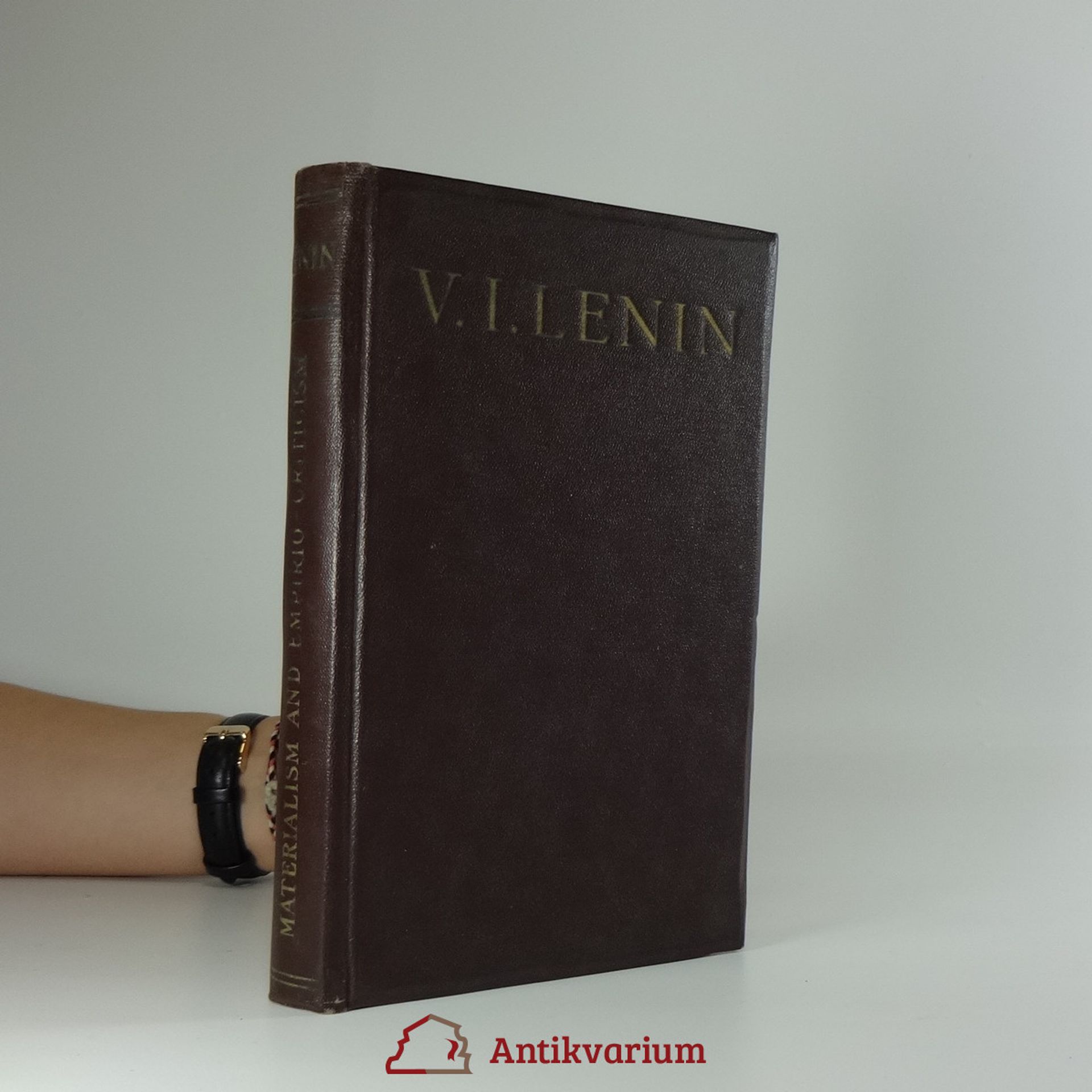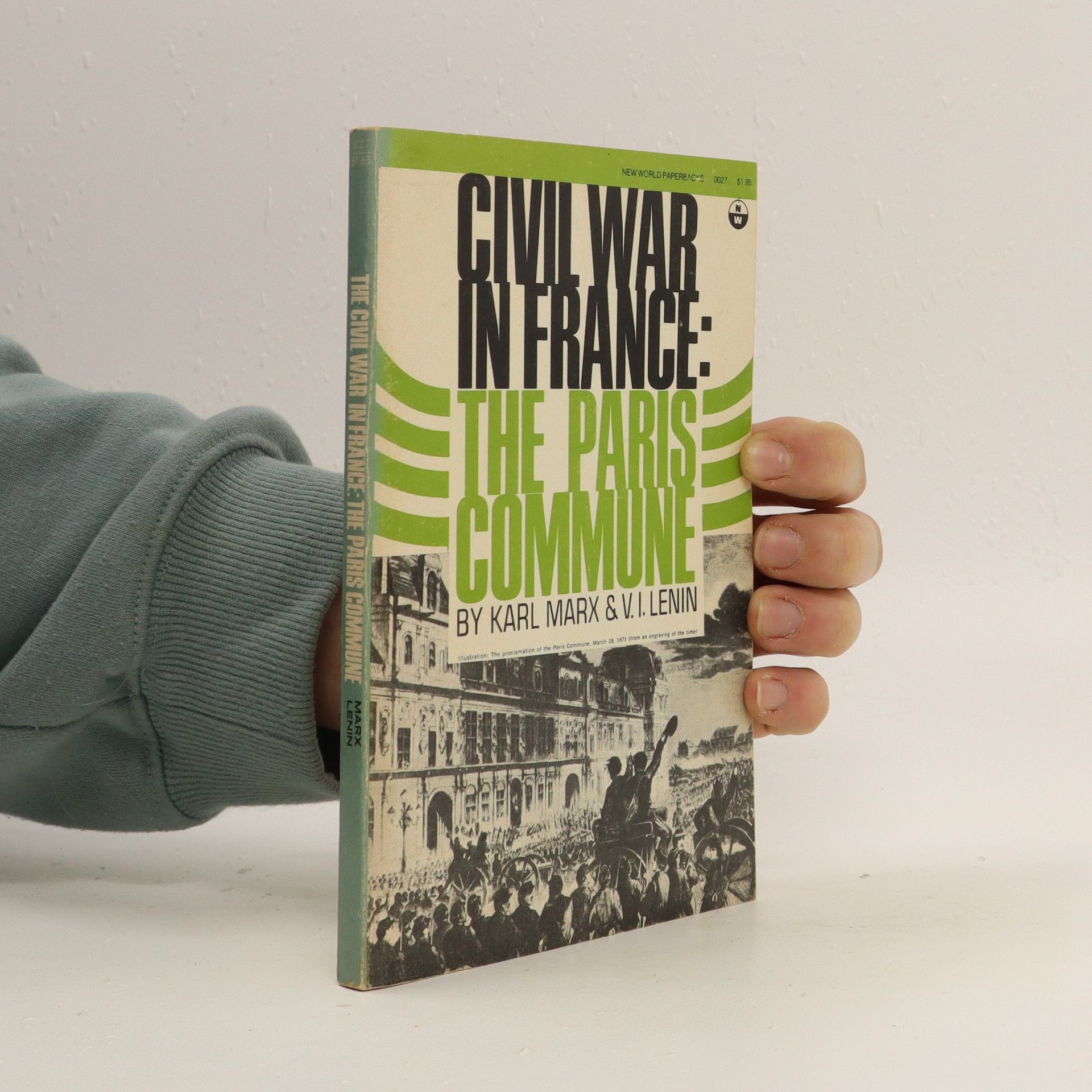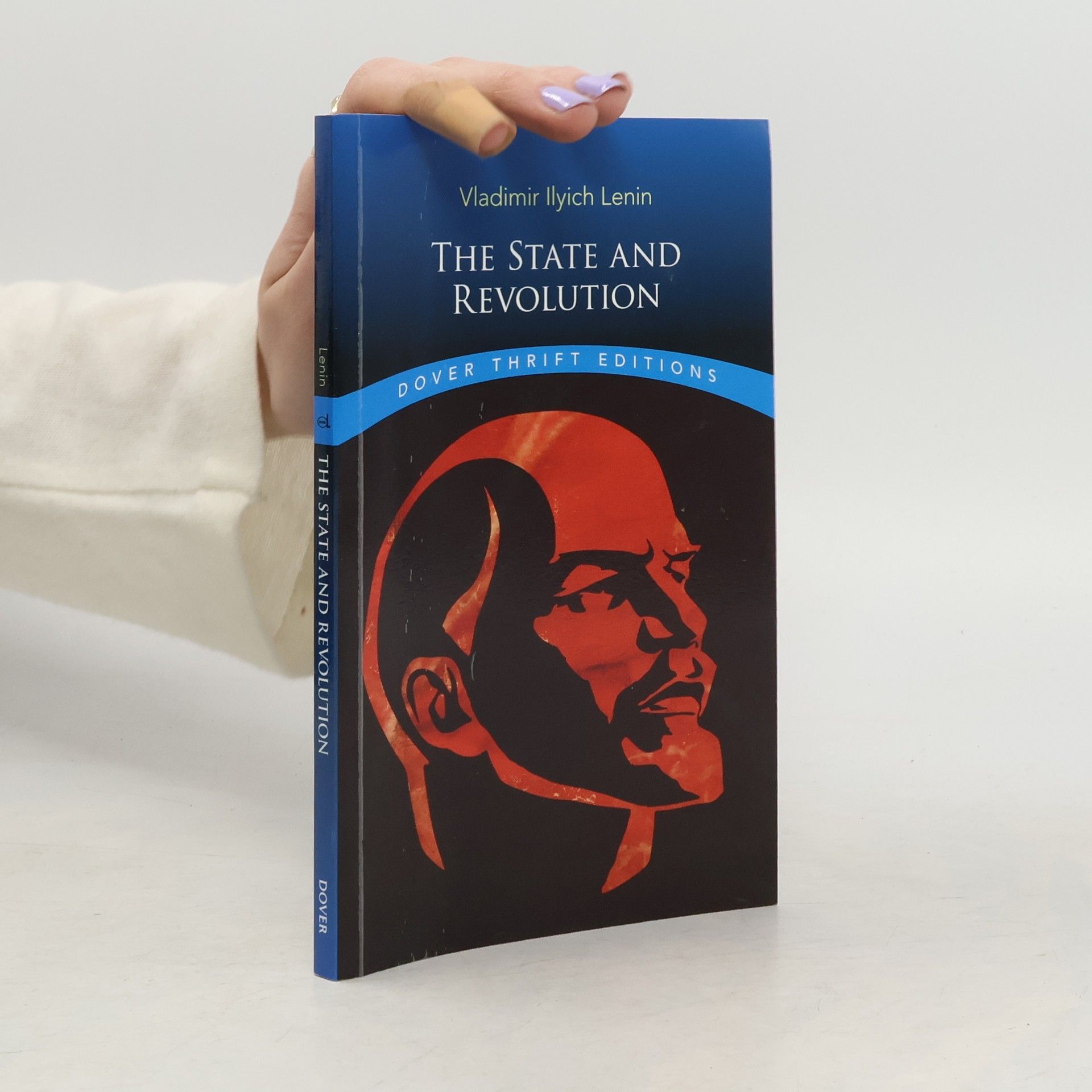Lenin's texts breaking with Eurocentrism in the socialist movement
Vladimir Iljič Lenin Livres
Vladimir Ilitch Lénine fut une figure centrale de la Révolution russe et un dirigeant du Parti bolchevique. Sa jeunesse fut marquée par un engagement dans la lutte révolutionnaire, influencé par l'histoire familiale et les courants philosophiques de son époque. Ses expériences face à l'oppression de la paysannerie et les enseignements marxistes le conduisirent à organiser des cercles d'ouvriers et à diffuser une littérature révolutionnaire. Après avoir mené la Révolution d'Octobre, il devint le premier président du gouvernement soviétique et fonda l'Internationale communiste, mettant en garde plus tard dans ses écrits finaux contre la bureaucratisation de l'État.







Civil War in France: The Paris Commune
- 144pages
- 6 heures de lecture
A reprint of the 1934 'enlarged edition', a volume that added newly translated material to the title essay. It includes an introduction by Engels ["Do you want to know that this dictatorship of the proletariat looks like? Then look at the Paris Commune. That was the dictatorship of the proletariat"], Marx's first and second 'Manifesto On The Franco-Prussian War', the correspondence of Marx & Engels on the Commune, and Engels' 'The Program of the Blanquist Fugitives from the Paris Commune'.
The Three Sources and Three Component Parts of Marxism. Karl Marx. Frederick Engels
- 82pages
- 3 heures de lecture
Excerpt from The Three Sources and Three Component Parts of Marxism; Karl Marx; Frederick Engels Karl Marx was born on May 5, 1818, in the city of Trier (rhenish Prussia). His father was a lawyer, a Jew, who in 1824 adopted Protestantism. The family was well-to-do, cultured, but not revolutionary! After graduating fi'om the gymnasium in Trier, Marx entered university, first at Bonn and later at Berlin, where he studied jurisprudence, but chiefly history and philos ophy. He concluded his course in 1841, submitting his doctoral dissertation on the philosophy of Epicurus. In his views Marx at that time was a Hegelian idealist. In Berlin he belonged to the circle of Left Hegelians (bruno Bauer and others) who sought to draw atheis tic and revolutionary conclusions from Hegel's philos ophy. About the Publisher Forgotten Books publishes hundreds of thousands of rare and classic books. Find more at www.forgottenbooks.com This book is a reproduction of an important historical work. Forgotten Books uses state-of-the-art technology to digitally reconstruct the work, preserving the original format whilst repairing imperfections present in the aged copy. In rare cases, an imperfection in the original, such as a blemish or missing page, may be replicated in our edition. We do, however, repair the vast majority of imperfections successfully; any imperfections that remain are intentionally left to preserve the state of such historical works.
Lenin Selected Writings
- 368pages
- 13 heures de lecture
The book delves into Lenin's critical role in advancing Marxism, addressing challenges from reformists and distorting ideologies. It highlights his contributions to the theory of proletarian dictatorship and the importance of the worker-peasant alliance. The text also explores Lenin's views on national and colonial issues, proletarian internationalism, and the necessity of a strong, unified party to lead the working class and oppressed peoples. Furthermore, it presents his innovative theory of socialist revolution, emphasizing the feasibility of socialism's success in a single nation.
This work-written in 1908 as a militant, occasionally virulent, polemic against certain Bolsheviks who had strayed from dialectical materialism into the jungle of "Machism" and associated idealist philosophies-serves today as an invaluable example of Lenin's approach to philosophy and as a general exposition of dialectical materialism. Lenin's breadth of knowledge shines in this text: he discusses the Marxist theory of knowledge, critiques the idealists, from Berkeley to the then current schools, and examines the contemporary "crisis" in natural science induced by new discoveries about the nature of matter and its concomitant ramifications for scientific study and questions of epistemology.With a new foreword by Helena Sheehan, the reprint of this classic text aims to return Materialism and Empirio-Criticism to the attention of the growing number of students of Marxism in the United States, and to provide material for the study of the interrelationship between Marxist politics and philosophy.
Paris Commune 150
- 112pages
- 4 heures de lecture
The book explores the Paris Commune of 1871, highlighting its brief but impactful experiment in democracy and workers' governance. It includes Marx's address on the Commune, Lenin's reflections on its significance for building socialism, and Bertolt Brecht's poetic tribute. Additionally, it features the Manifesto of the Paris Commune's Federation of Artists, showcasing the cultural and political aspirations of the time. Together, these texts provide insights into revolutionary thought and the enduring legacy of the Commune in shaping socialist ideals.
This enhanced edition of Lenin's seminal work features a unique, copyrighted index, making it a valuable resource for readers and researchers. The index, developed through advanced software and editorial review, facilitates more efficient and insightful reading of the text. This edition stands out for its practical addition, aiding in the exploration of Lenin's analysis of capitalism and imperialism, which remains relevant in contemporary discussions of economic systems.
Revolution, Democracy, Socialism
- 368pages
- 13 heures de lecture
The first serious collection of Lenin's writings for decades. Editor Paul Le Blanc argues that Lenin was committed to democracy.
The State and Revolution is Lenin's most significant work, in which he rejects the institutions of Western democracy and presents his vision of the final perfection of communism. It offers unparalleled insight into the twentieth century, capitalism, the Russian revolution, and more.
Vladimir Lenin created this hugely significant Marxist text to explain fully the inevitable flaws and destructive power of Capitalism: that it would lead unavoidably to imperialism, monopolies and colonialism. He prophesied that those third world countries used merely as capitalist labour would have no choice but to join the Communist revolution in Russia. GREAT IDEAS. Throughout history, some books have changed the world. They have transformed the way we see ourselves - and each other. They have inspired debate, dissent, war and revolution. They have enlightened, outraged, provoked and comforted. They have enriched lives - and destroyed them. Now Penguin brings you the works of the great thinkers, pioneers, radicals and visionaries whose ideas shook civilization and helped make us who we are.

